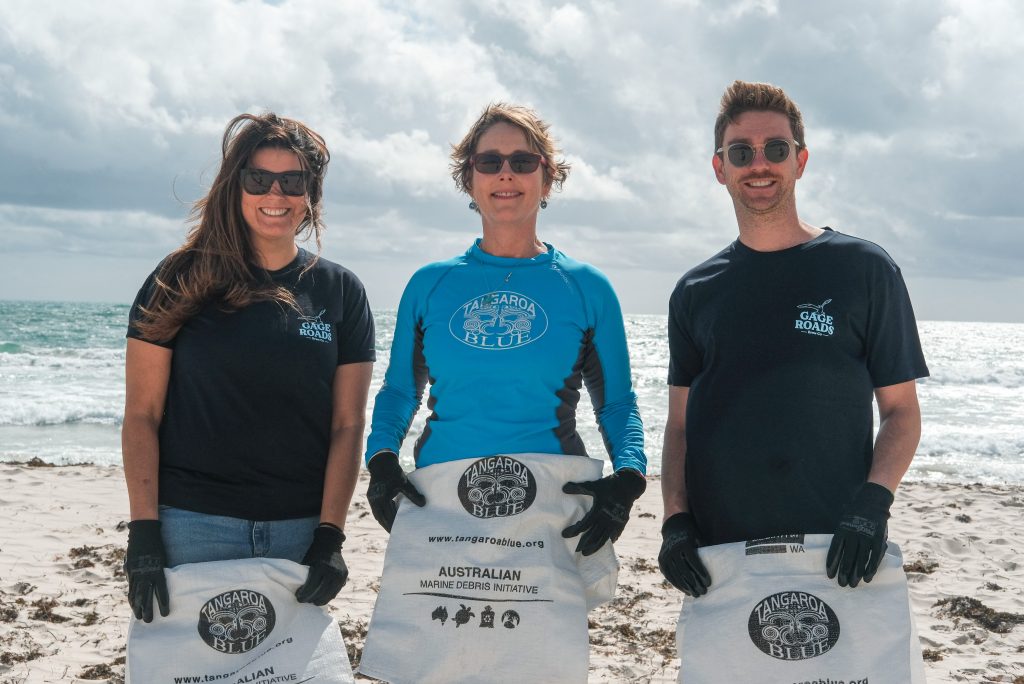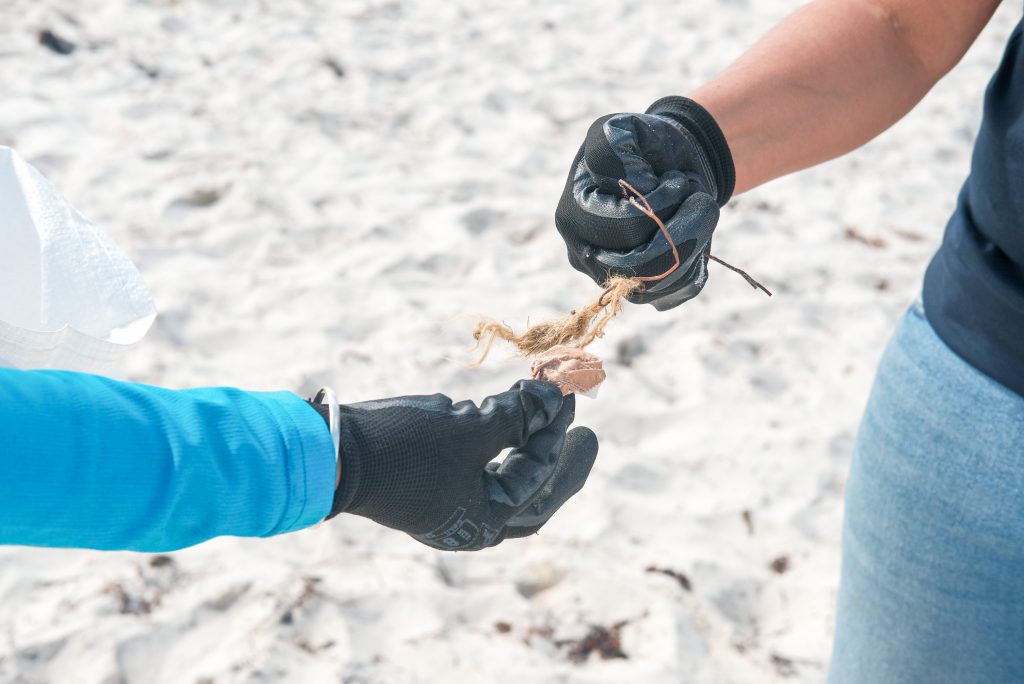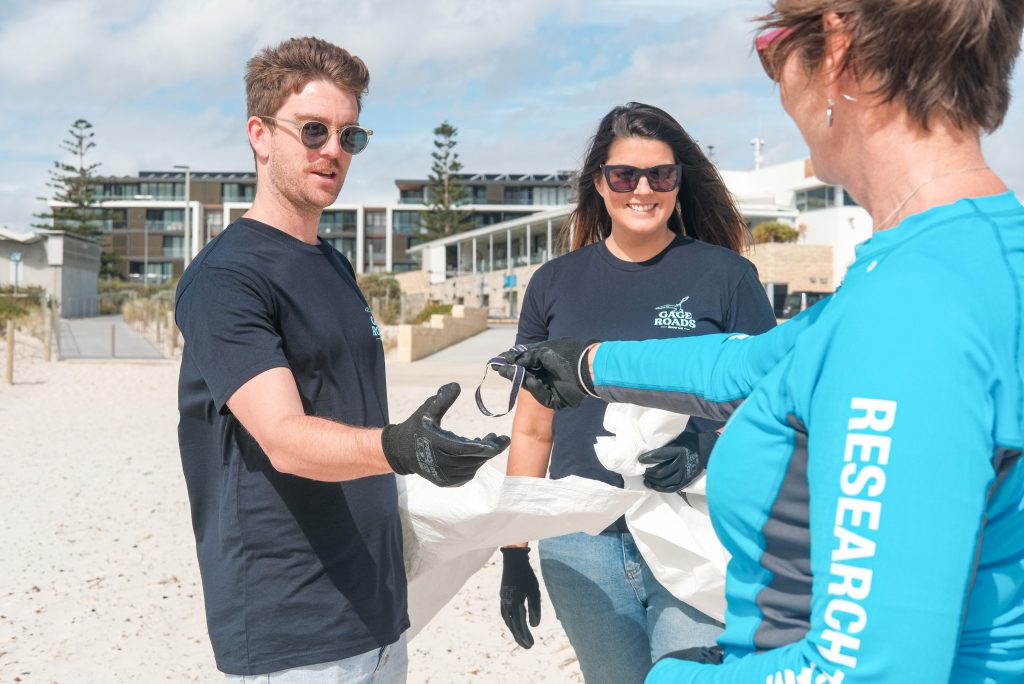It’s no secret we love the coast. The strip of ocean between Fremantle and Rottnest inspired our brewery, and our care for the ocean runs deep.
But with that, comes a responsibility to do our bit. That’s why we’re proud to team up with the Australian Marine Debris Initiative (AMDI), a key program coordinated by marine not for profit Tangaroa Blue Foundation, to help clean our oceans and track their health.
The partnership includes a series of national beach clean-ups and financial support through new beer releases (more on that soon), while helping Tangaroa Blue uncover more data about the health of our oceans.
Gage Roads brand lead Bec Lauchlan says it’s a cause that’s close to our heart.

“The coast is where we live and play. Protecting it is important to us, as well as to the people that enjoy our beers. We felt compelled to team up with AMDI to help make a difference. We’re excited to partner with AMDI and get our communities involved at a grass roots level,” says Bec.
The Australian Marine Debris Initiative, through a network of volunteers, monitors the impacts of waste along our coastlines. Coordinated by Tangaroa Blue Foundation, the program was launched in 2004 and has since removed more than 16 million pieces of debris (1,369 tonnes) from Australian coastlines. But it doesn’t stop there. The debris is collected, with data recorded into a database which is used to track what debris items are being found and where they come from.
“The unique aspect of AMDI versus other beach clean-up organisation is a focus on data collection. The Australian Marine Debris Initiative Database captures data from beach clean-ups, which identifies what’s showing up at individual locations, and aims to minimise that waste at the source. I think that’s one of the keys in driving sustainable change,” says Bec.
Alison Dorn from AMDI says different beaches have different debris, but there’s one common theme.
“Different locations attract different types of marine debris. For example, a suburban beach may likely have cigarette butts, takeaway food containers, plastic utensils including straws and recreational fishing items. A remote beach may have commercial fishing related debris such as ropes, nets, cray pots, and floats. However, ocean currents enable marine debris to travel far and wide. The common denominator, no matter where the beach, is that the marine debris is largely made up of plastic in many different shapes, sizes, and functions,” explains Alison.

Plastics make up around three quarters of all debris found at coastal clean-ups. The impact on marine life is devastating.
“Marine debris can harm marine life, pose a navigational hazard, smother coral and negatively affect tourism. There is research underway that explores what impact plastic ingested by fish will have as it passes through the food chain and how it may impact human health.
“Turtles and dugongs can become entangled in nets or ingest small plastic pieces and bags when they mistake them for food. Once released into the environment, plastics don’t biodegrade, they break up into smaller and smaller pieces, forever remaining in the environment,” says Alison.
The Gage Roads-AMDI partnership kicks off this October with a beach clean at South Beach in Fremantle, followed by a series of clean-ups right around the country.
“As AMDI partners, Gage Roads are not only participating in marine debris collection and contributing to the Australian Marine Debris Initiative Database with their own teams, their support helps us extend our reach and engage new participants in beach clean-ups, data collection and source reduction activities,” says Alison.

Bec hopes the partnership will help drive community engagement and increase awareness of the initiative, and ocean health in general.
“Our team will be getting out there, with Gage fans and trade partners to make our individual coastal playgrounds a cleaner place. We also hope our partnership with AMDI will help drive awareness & financial support to help them keep doing their amazing work,” says Bec.
Want to be a part of it? Come along to the Gage Roads Sponsored Clean-up at South Beach Fremantle on Saturday October 10.
Click here for more info about AMDI and Tangaroa Blue.
TOP 10 ITEMS FOUND ON AUSTRALIAN BEACHES
1. Plastic fragments
2. Plastic lids
3. Cigarette butts
4. Insulation foam
5. Plastic bottles
6. Food packaging
7. Plastic bags (bits)
8. Broken glass
9. Aluminum cans
10. Fishing line
